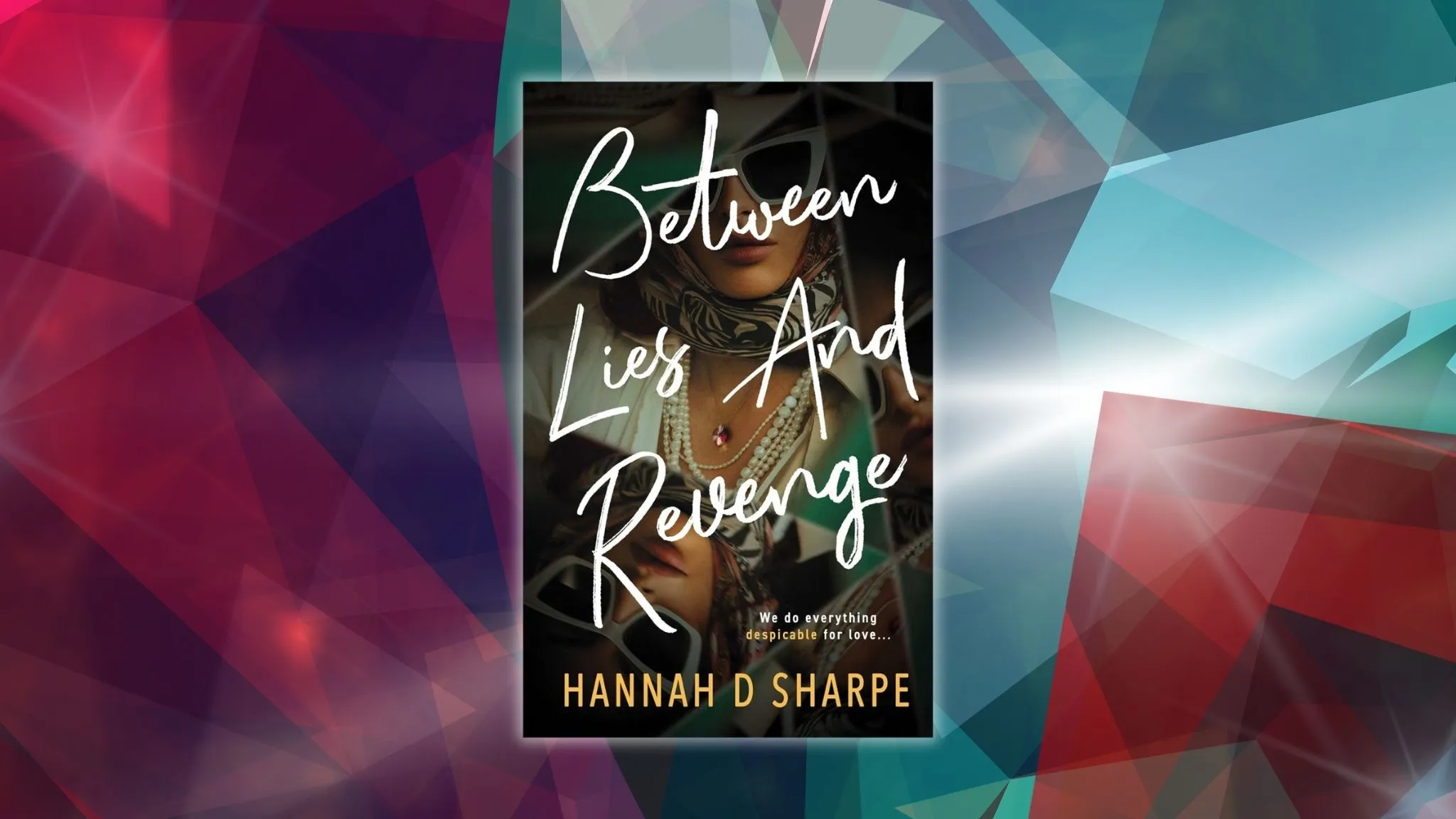For Authors
Success as an author can often appear to be an overnight transformation, but in reality, very few writers become household names without years of hard work. Behind every so-called “overnight success” lies a story of persistence, rejection, and unwavering dedication to the craft. Vaseem Khan is a perfect example of this. While he recently gained significant attention for being chosen to write a trilogy featuring the iconic James Bond character “Q,” his rise to fame didn’t happen out of the blue. It’s the result of a long and winding journey, built on countless words and books that paved the way for this moment.
As Ginger points out in this week’s blog, Khan’s journey offers invaluable lessons for aspiring authors about the tenacity and creative vision needed to achieve lasting success in publishing. From his inventive book concepts to his talent for immersing readers in richly detailed worlds, Khan has mastered what it takes to captivate an audience. So, if you’re looking to learn from a writer who’s carved out his place in the literary world, there are fewer better examples than the unique path to success of Vaseem Khan.
Many of the best-known authors of contemporary fiction burst into public awareness so quickly that they’re described as being an “overnight success” – yet in reality, that’s very rarely the case.
Most really successful writers spend years or decades honing their craft and publishing books, and it’s only when they hit a certain milestone that non-bookworms become aware of them. In many cases, it’s when a TV show or movie gets made about their books – think Jack Carr’s The Terminal List, Stephanie Meyer’s Twilight trilogy, or George R.R. Martin’s Game of Thrones books.
In other cases, it’s when their books reach a certain stage of notoriety that people who don’t normally follow the best-seller charts start getting interested – think 50 Shades of Grey by E.L. James, or the Crown of Rose and Thorns series by Sarah J. Maas.
But occasionally, an author will suddenly be introduced to a much wider audience for a different reason – like being chosen to pen a series of books featuring characters so well known that people make note of it even if they haven’t personally picked up a book in years.
That’s the case of distinguished mystery writer Vaseem Khan, who was recently chosen by Ian Fleming Publications to write a trilogy of books about the character of Major Boothroyd, better known to most as Q from the James Bond books and movies.
This announcement introduced Vaseem Khan to a whole new audience of people who might never have been aware of him otherwise – but that sudden increase in public awareness is very far from an “overnight success.”
Vaseem Khan has actually been writing books for nearly a decade, most notably two very successful mystery series that have ranked as multiple best-sellers and won a number of awards. In addition, Khan is the current chair of the Crime Writers’ Association, which champions the best in both fiction and non-fiction crime writing.
While some people are only learning of him now, Vaseem has actually spent years working diligently at his craft, and his “overnight success” came at the cost of countless hours of writing, editing, and grinding away to secure his place in an often thankless and competitive industry.
Today, I thought it might be valuable to examine Kahn’s writing to see what lessons aspiring authors can learn – and a great place to start is by examining how Kahn took his first book from page to print.
Lesson One: It Can Be A Long Road to Publication
Vaseem Khan was 40-years-old when Hodder and Stoughton launched his first traditionally published novel, The Unexpected Inheritance of Inspector Chopra. However, this was very far from Kahn’s first book. In fact, he’d been writing since the age of 17, starting off with a comic fantasy he describes as “Terry Patratchett-esque”, and then subsequently writing six more novels across various genres, none of which ever saw the light of day.
However, after spending nearly a decade working in India, Khan tried writing a novel set in Mumbai rather than his native England, and the concept of a buddy-buddy crime mystery pairing a retired Mumbai police inspector with a baby elephant instantly caught people’s attention. Hodder and Stoughton published the book in 2015, and nine more full-length novels followed. Today, Khan has become a best-selling author multiple times over, and people eagerly await each new book he publishes.
So, if there’s a lesson to be learned from this, it’s persistence! Vaseem Kahn must have written hundreds of thousands of words before even starting the first draft of The Unexpected Inheritance of Inspector Chopra, and that was how he managed to hone his skills and develop the engaging and entertaining writing style fans have come to celebrate.
Lesson Two: Concept is King
Authors need to sell a book long before their customers open it up and read it, and that’s where the importance of concept comes in. While icons like Stephan King and Lee Child have thousands of fans who’ll eagerly buy anything they write, lesser known authors have to hook potential readers with something other than name recognition – and in many cases, that’s a concept for their book that demands readers find out more.
When it comes to The Unexpected Inheritance of Inspector Chopra, that hook is the unlikely pairing of a retired police inspector with a baby elephant he reluctantly finds himself inheriting. It’s such an interesting and intriguing concept for a story that you can’t help but want to find out more about it – and the moment you read the first line, you’ll find yourself wanting to keep on going!
The same is true for Khan’s other book series, Malabar House. These are historical crime mysteries set in the 1950s and focus on the career of Mumbai’s first female police officer. Again, the concept of the books is so intriguing that you can’t help but want to find out more about them, and people who do often end up clicking the “Buy Now” button.
So, while you should obviously write the books you want to write, there’s something valuable to be learned from Vaseem Khan’s example. Create a compelling, thought-provoking concept for your books (an “elevator pitch” if you will) and you’ll nudge potential readers that much closer to becoming paying customers. If you can’t describe the concept of your book in a single sentence, keep working at it until you can.
Lesson Three: Take Your Readers to Another World
If you’ve ever been lucky enough to visit Mumbai, you’ll know it’s like no other city on Earth. It’s so vibrant and alive – with abject poverty crushed shoulder-to-shoulder with wealth and privilege, and an architecture and history that sometimes feels like something out of a dream. Describing Mumbai to people who haven’t been there is nearly impossible – but it’s something Vaseem Kahn does masterfully in all his books.
From the sights and smells (oh, so many smells) to the stifling heat and colorful architecture, Khan manages to make the city come alive for readers in a way that very few authors could hope to. He practically makes Mumbai a supporting character in his mysteries, and that’s one of the reasons readers find his books so captivating.
Aspiring authors can learn a lot by reading Khan’s work and taking note of the way he manages to bring Mumbai to life within the pages of his books. His clever, concise writing doesn’t waste a letter – and I think it’s this journalistic writing style that explains why Ian Fleming Publications chose to recruit him to join their literary stable, given how Ian Fleming was similarly known for writing about exotic and exciting locales in short and engaging sentences.
If you can make your readers feel that they’re standing right alongside your characters, you’ll draw them into your story in a really powerful and engaging way.
Lesson Four: Characters as Colorful as the City Itself
While Khan writes as if Mumbai was a supporting character in his stories, it’s his human (or pachyderm) characters that drive the plot – and readers seem to love them! If you read the reviews for his Baby Ganesh Detective Agency or Malabar House mysteries, you’ll see people celebrate Kahn’s colorful cast of characters again and again. They find them enchanting, engaging, and unexpected (which is a must for writing a good mystery novel.)
Characters, or more specifically their conflicts, are what drive all good fiction – something that’s especially true when it comes to mystery novels, which often hinge on the motivation of each of the suspects.
Studying Kahn’s writing is a masterclass in how to craft believable characters. His dialogue is crisp, witty, and realistic, and he manages to capture the essence of his characters with just a few sharply chosen adjectives; making them easy to bring to life within your mind’s eye.
Lesson Five: Stick to the Formula!
“It’s formulaic” is an insult often leveled at genre fiction, and it’s a grossly unfair accusation. As readers, we have certain expectations when we pick up a book, and we’re left feeling deeply unsatisfied if the novel fails to deliver on them. Imagine reading a romance novel without a happily-ever-after, for example. Readers would be rioting!
The same is definitely true of crime fiction – especially mystery novels. One of the largest genres in popular fiction, mystery novels have to follow the beats of a satisfying formula otherwise they won’t give you the addictive dopamine rush as you solve the mystery alongside the fictional protagonists.
Vaseem Kahn is well aware of this, and all his books are notable for how tightly structured they are – delivering what readers expect page-by-page, while delighting them with new twists and turns they didn’t see coming. He spent 23 years learning the craft of writing before Hodder and Stoughton published his first novel, and all that studying clearly paid off.
Aspiring authors can definitely learn from Khan’s example. You should be devouring books by other authors in your chosen genre – learning what works, what doesn’t, and what readers will be disappointed by if you don’t deliver. A good mystery novel is like a delicious recipe – if you don’t include all the right ingredients, it might leave a bad taste in your mouth.
Conclusion
While Vaseem Khan is enjoying a newfound level of public awareness thanks to joining the team at Ian Fleming Publications, his place alongside writers like Raymond Benson, Charlie Higson, and Anthony Horowitz has been hard-earned. “Overnight success” took decades to achieve, and Khan richly deserves to stand shoulder-to-shoulder with these thoroughbreds of thriller writers.
And as aspiring authors, we should find that example inspiring! Hard work, dedication to the craft, and unrelenting persistence helped bring Khan’s stories to bookshelves everywhere – and crime writing and mysteries are infinitely better off as a result.
Share this blog
About the Author

Ginger is also known as Roland Hulme - a digital Don Draper with a Hemingway complex. Under a penname, he's sold 65,000+ copies of his romance novels, and reached more than 320,000 readers through Kindle Unlimited - using his background in marketing, advertising, and social media to reach an ever-expanding audience.



















 English (US) ·
English (US) ·